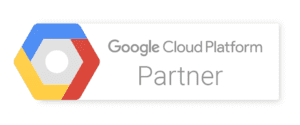Google has reportedly developed a new way to “disrupt” the $129 billion digital advertising industry while claiming to give users greater control over their online privacy through changes to how tracking cookies work.
According to a recent report from INC.com, tech giant Google is now disrupting the $129 billion digital advertising industry that the company already holds a duopoly on with Facebook. Why is Google doing this? They claim it is to prove that the company is making an effort to crack down on user privacy invasions across the Internet. Google announced a new initiative at its developer conference in Mountain View, California, to increase user privacy by allowing users to have more control over the internet cookies that advertisers use to track them.
This new initiative will likely have a significant effect on advertisers and how the online advertising system works, a power granted by Google’s domination of this market. The Wall Street Journal claims that altering the online advertising marketplace will actually benefit Google as smaller competitors need the tracking cookies to sell ads, but Google has plenty of other ways to collect this information.
INC.com reports:
The technical change itself is fairly simple to explain but was apparently difficult to achieve.
Google will reportedly say it’s creating a dashboard within the Chrome browser that lets users easily see all the cookies that are tracking them, along with easy ways to delete them.
The changes it’s making don’t actually go as far as changes that Apple has already made to the Safari browser and Mozilla made to Firefox. Those browsers have a much small market share, but they now restrict much of advertisers’ cookie activity by default.
But, Google has been weighing and working on the change for six long years, the Journal reports.
If the technical changes were difficult, however, Google will now face a new challenge, as the Journal put it: “a complicated sell” to convince users it’s on the side of the angels here, and truly motivated by user privacy.
INC notes that if Google’s plan goes ahead, we will actually end up in an online space more heavily dominated by Google all in the name of protecting user privacy — an area in which the company has been repeatedly criticized for some time:
Wait, why did it take six years to make the changes? It potentially involved rewriting millions of pages of code, and renegotiating thousands of agreements with other companies, according to the Journal’s sources.
However, the effort really stepped up in the last year or so, apparently, in the wake of Facebook’s Cambridge Analytica scandal. Of course, Mark Zuckberg has been trying to position Facebook as a company vehemently concerned with user privacy.
We’ll see how that goes. Meanwhile, not that anyone outside digital media is going to cry for them, but the smaller advertising players are already seeing the squeeze.
The Journal points out that a publicly traded French digital advertising company, Criteo, is down 27 percent since a report in Adweek in March predicted Google might make this change–and trying to assure investors it can come up with another tracking mechanism if Google takes this one way.
And so, if the predictions are true, here’s the ironic place we’ll wind up: a brave new world in which, all in the name of privacy, Google gains another advantage and swallows up even more of the market.



